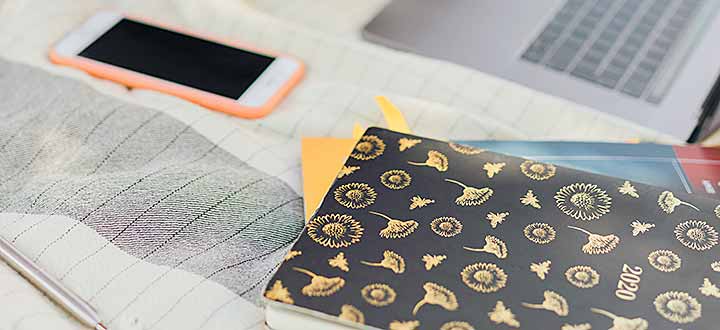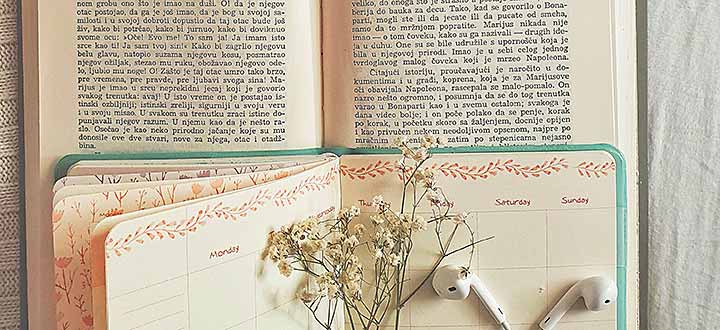say可以用于引出疑问句的直接引语吗
2024-11-23 12:05:37 学考宝 作者:佚名
动态
2023中国人民大学各省录取分数线是多少 投档最低分及位次殢人娇 无题。原文、翻译和赏析及第后答潼关主人原文、翻译和赏析职高有哪些专业 什么专业就业前景好质量为m的物体用弹簧秤悬在升降机顶棚上,在下列哪种情况下,弹簧秤的读数最小( )A.升降机匀速上...韩庄闸舟中七夕原文、翻译和赏析我的理想学校英语作文(通用39篇)瞧这一家子高三话题作文和平太行路韵 其一原文、翻译和赏析2024上海交通大学加拿大留学费用多少 性价比高吗五月复遇火原文、翻译和赏析蝶恋花•云间别苍水 其一原文、翻译和赏析答何记室诗原文、翻译和赏析丑奴儿令 落红 艳情原文、翻译和赏析十种不适合学画画的人 怎么看自己是否有天赋贵公子行原文、翻译和赏析 设,,为正数,且,则 A. B. C. D. 答案: D 赠张始均诗原文、翻译和赏析昆明理工大学简介 昆明理工大学师资及专业【双调】夜行船 送景贤回武林原文、翻译和赏析诗原文、翻译和赏析蝶恋花原文、翻译和赏析岭南喜晤曹秋岳作歌原文、翻译和赏析梁甫吟原文、翻译和赏析云门墱原文、翻译和赏析2024年6月英语四六级报名时间 几月份报名detail固定搭配除夕之夜作文汇总5篇(高中优秀范文)关于地名的诗词名句•二翰林故事莫盛于唐宋聊述旧闻拟宫词十首 其一原文、翻译和赏析艺考后如何选择文化课培训机构2024高考走美术生的利与弊 有出路吗2024高考体检必须在本地吗 需要注意什么寄熹公原文、翻译和赏析如果地面上一切物体受到的重力都消失了,则不可能出现的现象是()A.江河的水不会流动B.鸡毛和铁球都可以悬...2024高考不服从调剂会怎么样 有什么后果吗赠龚君瑞原文、翻译和赏析下列对课文的理解,不正确的一项是()A.《李凭箜篌引》“昆山玉碎凤凰叫”是指这一乐章以山崩地坼的气势开端...白头吟原文、翻译和赏析premier是什么意思_premier的音标_用法_翻译_短语搭配_权威例句
问题描述
看到这样一个句子,直接引语是一个问句,但没有用 he asked,而是用了 he said:
“Seb?’ he said, with a rising inflection.“是塞伯吗?”他扬声问道。
请问:这种用法规范吗?
老师答疑
W老师:
这位网友所列句子中的 said 的用法是规范的。
如果直接引语是疑问句,引述动词通常用 ask,但用 say 也完全可以的。如以下句子均来自英语词典和语法书:
‘Really?’ she said, raising her eyebrows. “真的吗?”她扬起双眉说。
‘What do you expect?’ he said, without looking at her. “你想怎么样呢?”他看也不看她说道。
A voice at my elbow said, ‘Would Sir care to be seated?’ 离我很近的一个声音说:“先生要坐下吗?”
‘Do you mind?’ she said, as he pushed into the queue in front of her. 他挤到她前面来排队时,她说。
陈老师:
看到这样一个句子,直接引语是一个问句,但没有用 he asked,而是用了 he said:
“Seb?’ he said, with a rising inflection.“是塞伯吗?”他扬声问道。
请问:这种用法规范吗?
这样表达也是可以的,相当与宾语提前到装表达
关于直接引语与间接引语的转换几种句子种类归案如下:
引述别人的话有两种方式:一是使用引号引出人家的原话,这叫做直接引语;一是用自己的话把人家的话转述出来,这叫做间接引语.
John said, "I’m going to London with my father." 约翰说:"我要和父亲到伦敦去."
(引号内是直接引语)
John said that he was going to London with his father. 约翰说,他要和他父亲去伦敦.
(宾语从句是间接引语)
在将直接引语转换为间接引语时,不仅句式上要有变化,而且要在时态、人称、时间、地点等方面作相应的变化。
引语转换时的句式变化:不同的直接引语句式,如:陈述句、疑问句、祈使句和感叹句,转换成间接引语时要遵循一定的句式转换规则,还要注意根据句意,使用适当的引述动词。
(1)陈述句的间接引语
将陈述句转换为间接引语,通常用that引导的宾语从句来表达。连词that 在不引起歧义的情况下可以省略。引述分句的动词常见的有say 和tell等。
She said. "My brother wants to go with me. "
→She said her brother wanted to go with her
Mr Smith said. "Jack is a good worker."
→Mr Smith said Jack was a good worker.
She said. "I have lost a pen."
→She said she had lost a pen
She said. "We hope so."
→She said they hoped so.
She said. "He will go to see his friend.
"→She said he would go to see his friend.
The earth moves around the sun and the moon moves around the earth, the teacher told me.
→ The teacher told me the earth moves around the sun and the moon moves around the earth.
【特别注意:】在下列情况下,往往要保留that。
① that 的省略会产生歧义。
Linda said disappointedly that when she arrived at the station, the train had already left.琳达很失望地说,她到达车站时火车已经开走了。(如不用that,when状语从句既可以理解为修饰said, 又可以理解为修饰had left)
② 当引述动词后面不止跟一个that引导的从句时,第二个that不能省略。
He said (that) he was leaving for Europe the next week and that he would stay there for half a year. 他说他下周要到欧洲去并在那里呆半年。(第二个that不能省略)
(2)疑问句的间接引语
直接引语如果是疑问句,变成间接引语后,叫做间接问句。引述的动词常用ask, inquire, wonder, want to know等。间接问句的词序一般都用正常词序,句末不用问号,用句号。
①一般疑问句的间接引语
直接引语为一般疑问句时,用连词whether或if 引导,某些表示请求的疑问句也可以转换成间接祈使句。
"Do you go to school by bus or by bike?"
→He asked me if I went to school by bus or by bike.
【特别注意:】引述词say to oneself常改成wonder。
I said to myself, “Am I fit for the job?”
I wondered if I was fit for the job.
我不知道我是否能胜任这项工作。
②选择疑问句的间接引语
直接引语为选择疑问句时,用连词whether/if…or…引导。
He said, “Are you interested in English or not?”
He asked (me) whether I was interested in English or not.
③特殊疑问句的间接引语
直接引语为特殊疑问句,转换为间接引语时,仍用原来的疑问词引导。
He asked , "Where do you live?"
→He asked me where I lived.
Jack said. "John, where were you going when I met you in the street?"
→Jack asked John where he was going when he met him in the street.
He said to Kate. "How is your sister now?"
→He asked Kate how her sister was then.
“What do you do in your free time?” he asked me.
【特别注意:】“What’s the matter with you?”和“What’s wrong with you?”改为间接引语时词序不变。
He asked me what was wrong with me.
他问我出什么事了。
He asked me what was the matter with me.
他问我怎么了
(备注:如果直接引语如果是反意疑问句,,间接引语应改为由whether或if引导的宾语从句.)
She asked me , "You have seen the film, haven’t you?"
→She asked me whether(或if )I had seen the film.
He said, "Can you swim, John?"
→He asked John if he could swim.
"You have finished the homework, haven‘t you?" my mother asked.
→My mother asked me whether I had finished the homework.
"Do you go to school by bus or by bike?"
→He asked me if I went to school by bus or by bike.
(3)祈使句的间接引语:直接引语如果是祈使句,变成间接引语后,叫间接祈使句。
①祈使句表示命令时,要把直接引语的动词say变成command, order, tell等动词,被转述的部分改为动词不定式。否定祈使句改为not to do结构。
Don’t make any noise," she said to the children.
→She told (ordered) the children not to make any noise.
②祈使句表示请求时,常把直接引语的动词say变成ask, beg, request, urge等动词。
"Bring me a cup of tea, please," said she.
→She asked him to bring her a cup of tea.
The teacher said to the boy, "Open the window.
"→The teacher told the boy to open the window.
His father said to him , "Don’t leave the door open."
→His father told him not to leave the door open.
③以Let’s开头的祈使的句,变间接引语时,通常将引述动词改为suggest,然后再接that从句。
A:He said, "Let’s go to the film."
→He suggested going to the film.
或He suggested that they should go to see the film.
→He suggested (our )going to the theatre.
或He suggested that we(should) go to the theatre.
B:"Would you mind opening the window?" he asked.
→He asked me to open the window.
"Why don’t you take a walk after supper?" he asked .
→he advised me to take a walk after supper.
"Shall we listen to the music?" he asked.
→He suggested listening to the music.
(4)感叹句的间接引语
直接引语是感叹句,变成间接引语后,叫做间接感叹句。间接感叹句多采用宾语从句结构,既可用what或how引导,也可用that引导,还可以根据句子表达的不同感情选用适当的动词和状语来转换。
She said, "What a lovely day it is !"
→She said what a lovely day it was .
或She said that it was a lovely day.
(5)并列句和复合句的间接引语
当转述的内容为并列句或复合句,或有两种以上的句子时,应根据不同的句式来选择不同的引述动词和连接词。

















